
⬇ Access all presentation slides below under “Programme“
The 2021 United Nations Food Systems Summit, held during the UN General Assembly in New York on 23 September 2021, set the stage for global food systems transformation to achieve the Sustainable Development Goals by 2030.
ISC Members, the International Union of Food Science and Technology (IUFoST) and the International Union of Nutritional Sciences (IUNS), invite you to a knowledge sharing dialogue over two days, looking at how to move the outcomes of the Food Systems Summit forward.
From our participants
💬 “It was very informative and I enjoyed listening to varied topics on food science and nutrition.”
💬 “Very good dialogue, thank you for the presentations. Food safety will play a key part in the near future, and more dialogues discuss other aspects would be useful”.
💬 “This dialogue is an excellent initiative and very helpful for developing countries in particular.”
💬 “I appreciate the initiative of bridging between food science and technology, and nutrition in this dialogue. I could see that both science sectors could jointly address some of the challenging issues on the sustainability of food systems, food processing and nutritional quality. Healthy diets must also see the implication of multi-disciplinary approach.”
💬 “Thanks to all the speakers for excellent and visionary presentations. The point of transformative opportunities facing big data and AI is particularly inspiring. Diving into data science for example of relevance to food and nutrition science will be most welcome.”
This report was produced in December 2020 in the frame of the IIASA-ISC Consultative Science Platform “Bouncing Forward Sustainably: Pathways to a post-COVID World” and argues that the emphasis on efficiency, which has been driving to a large part the evolution of food systems, needs to be counter-balanced by a greater emphasis on resilience and equity concerns. As illustrated by the pandemic this entails expanding the scope and reach of social safety nets and protection schemes. It also includes assessing and where necessary adjusting supply chains and trade in their capacity to absorb and adapt to a multitude of risks.
Unleashing Science: Delivering Missions for Sustainability
The ISC report Unleashing Science: Delivering Missions for Sustainability offers an ambitious approach – a concerted effort to produce actionable knowledge through a set number of Sustainability Science Missions – in the critical areas of food, energy and climate, health and wellbeing, water, and urban areas. Scaling up science investment to strongly and sustainably support Sustainability Science Missions, united around a common sustainability agenda, provides a real opportunity for mobilizing and putting to use the best global science for societal transformations in an outcome-driven, coordinated and integrated manner.
–— Indicated times refer to UTC —
16 November
| 08:00 – 08:05 | Welcome and introductions (Alison Meston, Dr. Vish Prakash, Prof. J. Alfredo Martinez) |
| 08:05 – 09:05 | SESSION 1: Nutrition Targets and Health Goals • “Healthy Diets Concepts and Controversies” – Dr. Lynnette M Neufeld (President-elect, International Union of Nutritional Sciences) • “Children Nutrition for Better Life: Evidence from Africa” – Prof. Ngozi Nnam (African Nutrition Society, Federation of African Nutrition Societies) ▶ Access Prof. Ngozi Nnam’s presentation slides • “Nutrition for Healthy Well-being and Aging: Evidence from Latin America” – Dr. Wilma B. Freire (President-elect, Sociedad Latinoamericana De Nutrición) ▶ Access Dr. Wilma B. Freire’s presentation slides Session Chairs • Professor Catherine Geissler (Secretary General, International Union of Nutritional Sciences; Professor Emerita, Human Nutrition, King’s College London) • Professor Francis Zotor (Council Member, IUNS; Trustee, African Nutrition Society, Federation of African Nutrition Societies and AfriCAN) |
| 09:05 – 09:10 | Break |
| 09:10 – 10:10 | SESSION 2: Innovations in Food Science and Technology for Sustainable Food Processing The UN Food System Summit clearly emphasized the need for a bridge between farm to consumer through sustainable food processing. The role of Food Science and Technology is crucial, although it is assumed by many that food is ready to cook or eat. Food Processing through innovation has provided the basis of primary, secondary, and tertiary food processing with potential for new raw materials. This session highlights the role of Novel Food production and diets that drive the sustainable food system including some of the disruptive technologies that are game changers. The final product reaches the consumer and globally makes an impact in saving millions of lives through technology value addition to agricultural commodities and diffusion and scaling up of processes while reducing energy costs. These will be highlighted in the Session with clear examples of innovations and sustainable food processing leading to the Planetary Health agenda of ISC by the speakers. • “Novel food production and diets for more sustainable food systems” – Prof. Dr Alexander Mathys (Head, Sustainable Food Processing Laboratory, Institute of Food, Nutrition and Health, ETH Zurich, Switzerland) ▶ Access Prof. Dr Alexander Mathys’ presentation slides • “Sustainable Solutions through Disruptive Technologies” – Dr. Mitsutoshi Nakajima (Project Manager, The Moonshot R&D Programme for Agriculture, Forestry and Fisheries – Development of Innovative Food Solutions for Simultaneous Food Loss Reduction and Quality of Life Improvement, Japan) ▶ Access Dr. Mitsutoshi Nakajima’s presentation slides • “Food Processing Saves Lives” – Dr. Susana Socolovsky (PhD in Chemistry, University of Buenos Aires, Past President of Argentine Association of Food Technologists) and Dr. Roger Clemens (School of Pharmacy, University of South California, Fellow of the American Society of Nutrition, Immediate Past President of International Academy of Food Science and Technology) ▶ Access Dr. Susana Socolovsky’s presentation slides ▶ Access Dr. Roger Clemens’ presentation slides Session Chairs • Aman Wirakartakusumah (Presiding Officer, International Academy of Food Science and Technology (IAFoST); Member, Indonesia Academy of Sciences) • Fereidoon Shahidi (President, International Society of Functional Foods and Nutraceuticals; Chair IUFoST Scientific Council) |
| 10:10 – 10:15 | Break |
| 10:15 – 11:15 | SESSION 3: Sustainability for Nutritional Health • “Agricultural Biodiversity for Better Nutrition, Health and Improved Livelihoods in sub-Saharan Africa” – Dr. Robert Fungo (Vice-President, Federation of African Nutrition Societies; Lecturer, Makerere University, Kampala, Uganda; Scientist Nutrition, The Alliance of Bioversity International and CIAT) ▶ Access Dr. Robert Fungo’s presentation slides • “Processed Revolution and Malnutrition” – Prof. Anna Lartey (Prof. of Nutrition, University of Ghana; Former Director, Nutrition FAO; Immediate Past-president, International Union of Nutritional Sciences) ▶ Access Prof. Anna Lartey’s presentation slides • “Sustained Nutrition, Health Affordability and Climate Goals” – Prof. Ridwan Hardinsyah (President, Federation of Asian Nutrition Societies) • “Sustainable Healthy Diets – What do we mean and how do we promote them?” – Dr Ana Islas Ramos (Nutrition Officer, Food and Agriculture Organization) ▶ Access Dr Ana Islas Ramos’ presentation slides Session Chair • Professor Francis Zotor (Council Member, IUNS; Trustee, African Nutrition Society, Federation of African Nutrition Societies and AfriCAN) |
| 11:15 – 11:20 | Break |
| 11:20 – 12:20 | SESSION 4: Integrating Capacity Building and Future of Food Science The UN Food System Summit has clearly focussed on capacity building at various levels for sustainable food systems. One of the key roles that IUFoST emphasizes is sustainable capacity building and its role around Food Science and Technology and how this will inter-relate with other sciences in the future. The impact comes from the digital synergy of the internet in future Food Science education systems and the game changers in the stream. The role of Food Engineering in the product innovation and processing chain as well as what is in store for the early career scientists in the vibrant area of Food Science and Technology. It is important to harness leadership through the integrated approach and borderless science for a seamless impact that is resilient and sustainable, involving engineering sciences and multidisciplinary approaches. The speakers will focus on such impacts in Food science education, in the context of technology and innovations in Food Science and Technology sector and relationships and collaborations with other sciences. • “Future of Food Science” – Dr. Sam Saguy (Professor Emeritus of Food Engineering and Biotechnology, The Hebrew University of Jerusalem, Israel) ▶ Access Dr. Sam Saguy’s presentation slides • “Engineering the Food Science” – Dr. Ferruh Erdogdu (Professor of Food Engineering, Ankara University, Turkey) ▶ Access Dr. Ferruh Erdogdu’s presentation slides • “Future opportunities for Young Food Scientists?” – Dr.-Ing. Azis Boing Sittanggang (IUFoST Early Career Scientist, Department of Food Science and Technology, IPB University, Indonesia) ▶ Access Dr.-Ing. Azis Boing Sittanggang’s presentation slides Session Chairs • Dr. Cristina Silva (Asst Director, Internationalization, Portuguese Catholic University) • Dr. Sebastiano Porretta (Senior Researcher, Italian Ministry of Economic Development) |
| 12:20 – 12:45 | Q&A, Discussion Chaired by Prof. J. Alfredo Martinez (President, IUNS) and Dr. Vish Prakash (President, IUFoST) Discussant • Prof. Hyun-Sook Kim (Council Member, IUNS; Professor, Dept. of Food and Nutrition, Sookmyung Women’s University, Korea) |
17 November
| 15:00 – 15:05 | Welcome (Alison Meston, Prof. J. Alfredo Martinez, Dr. Vish Prakash) |
| 15:05 – 16:05 | SESSION 5: Sustainable Food Safety in Food Processing Of the 17 SDGs that need to be achieved before 2030 discussed at UNFSS, there are more than two thirds of them that belong to the area of Food. Also emphasized in the Food and Nutrition security charter of the IUFoST is food safety, which is of prime importance without safe food to eat, there is no food security. With an assured Food Safety system, the sustainability and the resilience of dietary shifts that is expected to happen in addressing nutrition remedies for chronic maladies can be affected through safe Food Processing. The entire food safety system needs to be understood and implemented at every level and steered through the issue of regulatory dynamics. Prevention of microbial contamination demands the highest attention along with the role of adaptable and safe technologies for traditional foods in the transition from small to medium to large industries from farm to consumer. These are addressed in depth by the speakers in this session with a focus on food safety leading to the Planetary Health agenda of ISC. • “Steering Food Safety through Regulatory Processes” – Dr. Samuel Godefroy (Founder, Global Food Regulatory Science Society and Food Risk Analysis and Regulatory Excellence Platform, Canada) ▶ Access Dr. Samuel Godefroy’s presentation slides • “Developing Microbiological Criteria to Improve Food Safety: lessons learned from Indonesia” – Dr. Ratih Dewanti-Hariyadi (Professor, Dept of Food Science and Technology, SEAFAST Centre, IPB University-Indonesia; Member, International Commission of Microbiological Specifications in Foods) ▶ Access Dr. Ratih Dewanti-Hariyadi’s presentation slides • “Traditional Foods Processing and Safety” – Dr. Charles Aworh (Distinguished Professor, Pioneer Chair of University of Ibadan’s Multidisciplinary Research Laboratory, Nigeria, Fellow; Chairman, Body of Fellows, Nigerian Institute of Food Science and Technology) ▶ Access Dr. Charles Aworh’s presentation slides • “Food Safety Culture, an essential ingredient for safe and healthy diets” – Dr. Carol Wallace (Professor of Food Safety Management Systems; Co-director of Nutritional Sciences and Applied Food Safety Studies Group, Presented with Honorary Membership in American Public Health Association for contributions to Public Health Community, 2019) ▶ Access Dr. Carol Wallace’s presentation slides Session Chairs • Pingfan Rao, PhD (Past-President, IUFoST; Vice President, Chinese Institute of Food Science and Technology) • Dr. Hongda Chen (USDA; Member, International Society of Food Applications of Nanoscale Sciences) |
| 16:05 – 16:10 | Break |
| 16:10 – 17:10 | SESSION 6: The Value of Nutrition in Pandemics • “Immunonutrition for a healthier life” – Prof. Philip Calder (President, Federation of the European Nutrition Societies) ▶ Access Prof. Philip Calder’s presentation slides • “Mediterranean Diet and cardiovascular health: a 75-year perspective” – Prof. Jacques Delarue (Secretary, Federation of the European Nutrition Societies; Council member, French Nutrition Society) ▶ Access Prof. Jacques Delarue’s presentation slides • “Omics applications to precision nutrition in fighting the Obesity pandemic” – Prof. J. Alfredo Martinez (President, International Union of Nutritional Sciences) ▶ Access Prof. J. Alfredo Martinez’ presentation slides • “Understanding food systems-diet quality-nutritional outcome linkages with nuclear techniques” – Dr. Victor Owino (Nutrition Specialist, International Atomic Energy Agency) ▶ Access Dr. Victor Owino’s presentation slides Session Chair • Professor Catherine Geissler (Secretary General, International Union of Nutritional Sciences; Professor Emerita, Human Nutrition, King’s College London) • Prof. Hyun-Sook Kim (Council Member, IUNS; Professor, Dept. of Food and Nutrition, Sookmyung Women’s University, Korea) |
| 17:10 – 17:30 | Q&A, Discussion Chaired by Prof. J. Alfredo Martinez (President, IUNS) and Dr. Vish Prakash (President, IUFoST) |
| 17:30 – 17:35 | Break |
| 17:35 – 18:15 | IUFoST-IUNS Closing Discussion on Food and Nutrition Security Chaired by Prof. J. Alfredo Martinez (President, IUNS) and Dr. Vish Prakash (President, IUFoST) Guest • Frank Sperling (Senior Project Manager, International Institute for Applied Systems Analysis) |
💬 SPEAKERS AND CHAIRS LIST
(click here to view short bios of all speakers and chairs)

Dr. Ogugua Charles Aworh, speaker
Dr. Ogugua Charles Aworh is Lifetime Achievement Award recipient and past Academy Chair of the Nigerian Institute of Food Science and Technology (NIFST). He obtained a B.Sc. (Hons) from the University of Ibadan (UI), Nigeria, MSc and Ph.D. in Food Science and Technology from Cornell University, USA. He is Distinguished Professor and served three-terms as Head, Department of Food Technology, UI. He has been visiting Research Fellow/Professor at University of Leeds, UK; University of British Columbia, Canada; and Alexander von Humboldt Research Fellow, Hamburg University of Technology, Germany. He is pioneer Chairman of UI’s Multidisciplinary Central Research Laboratory. His areas of research include post-harvest technology and processing, food safety, biotechnology, and capacity building. He has over 100 scientific publications and has supervised 120 MSc and 17 PhD students. He led WAAFoST’s [IUFoST Regional Body] contribution to IAFoST/ IUFoST Global Challenges Report and is mentor for African Women in Agricultural Research and Development and IUFoST young scientists.
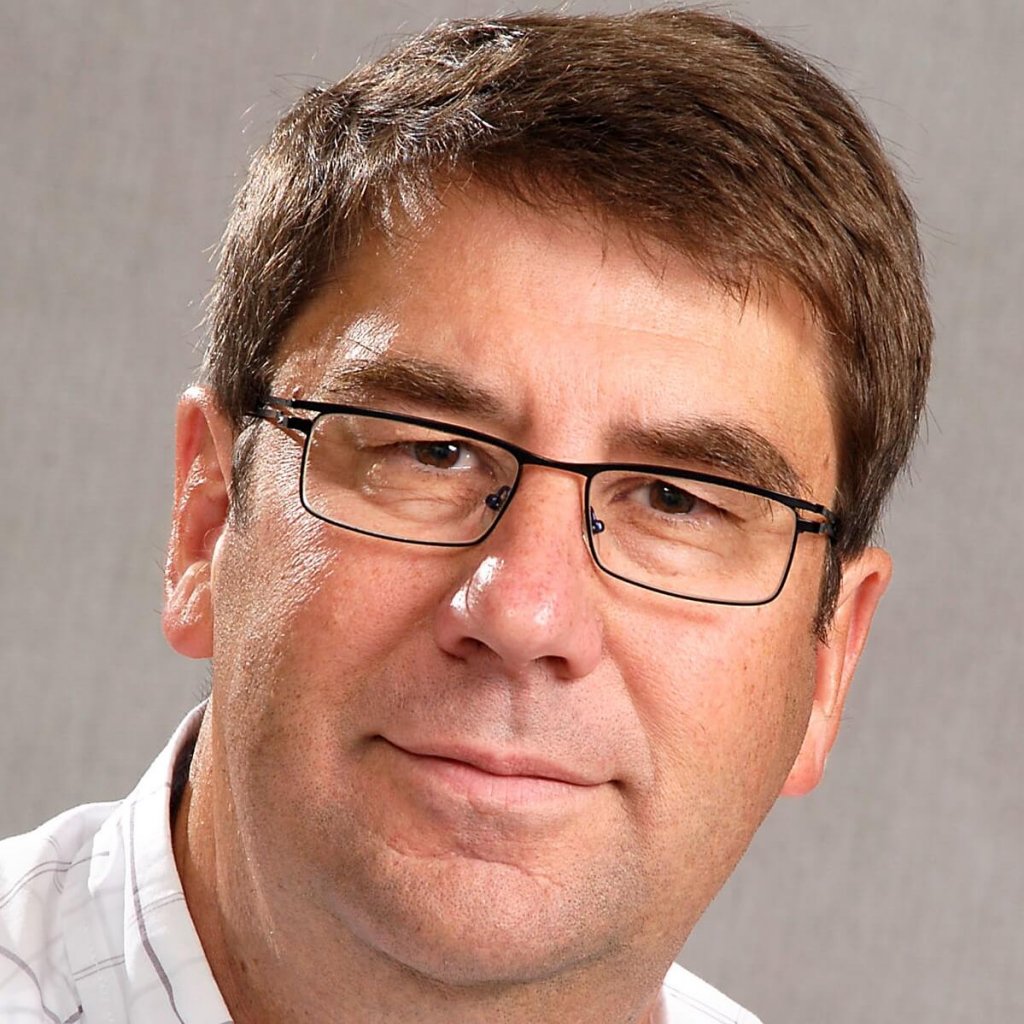
Prof. Philip Calder, speaker
Philip Calder is Head of the School of Human Development and Health and Professor of Nutritional Immunology in the Faculty of Medicine, University of Southampton, Southampton, UK. He is an internationally recognized researcher on the metabolism and functionality of fatty acids, with an emphasis on the roles of omega-3 fatty acids, and on the influence of diet and nutrients on the immune and inflammatory responses. His research addresses both life course and translational considerations and includes research in cell and animal models and in healthy humans and patients. He has received many awards and prizes for his work including the American Oil Chemists’ Society Ralph T. Holman Lifetime Achievement Award (2015), the prestigious Danone International Prize for Nutrition (2016) and the DSM Lifetime Achievement Prize in Human Nutrition (2017). Professor Calder was President of the International Society for the Study of Fatty Acids and Lipids (2009-2012), Chair of the Scientific Committee of the European Society for Clinical Nutrition and Metabolism – ESPEN (2012-2016) and President of the Nutrition Society (2016-2019). He is currently President of the Federation of European Nutrition Societies (2019-2023). Professor Calder was Editor-in-Chief of the British Journal of Nutrition (2006-2013) and is currently an Associate Editor of Journal of Nutrition, Clinical Science, Nutrition Research and Annals of Nutrition and Metabolism. He has over 700 scientific publications and is recognized as a Highly Cited Researcher.
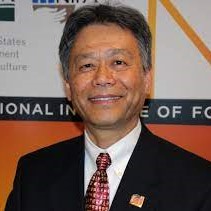
Dr. Hongda Chen, session chair
Dr. Hongda Chen is the National Program Leader of Bioprocess Engineering and Nanotechnology at the National Institute of Food and Agriculture (NIFA), USDA. He leads the national portfolio of food science, engineering and technology in research, education, and extension for advancing food processing and manufacturing technologies, and value-added products. He also provides the national leadership for nanoscale science and nanotechnology for agriculture and food systems. Dr. Chen is a Fellow of IAFoST and member of the IUFoST Scientific Council.

Dr. Roger Clemens, speaker
Dr. Clemens is part-time faculty within USC’s School of Pharmacy where he enjoys adjunct appointments as Professor of Pharmacology and Pharmaceutical Sciences and Assistant Professor of Regulatory and Quality Sciences. For more than 20 years, he has been responsible for courses in food and drug toxicology, food science, regulations of foods and dietary supplements. He developed and instructs graduate global nutrition courses within the USC School of Medicine. He served as Scientific Advisor for Nestlé USA for several decades prior to being recruited to join the faculty at USC. Dr. Clemens is an elected Fellow in four scientific organizations: American Society for Nutrition, American College of Nutrition, Institute of Food Technologists, and International Academy of Food Science and Technology. Dr. Clemens is a past president of the Institute of Food Technologists (IFT) and is the immediate-past presiding officer (aka President) of the International Academy of Food Science and Technology). He co-founded, established and contributed to a Food, Medicine and Health column published monthly in Food Technology for 16 years. He continues to serve on several editorial boards (e.g., Food Chemical Toxicology, Toxicology Research and Applications, Journal of Dietary Supplements) and continues to serve as a reviewer for many high-impact journals.
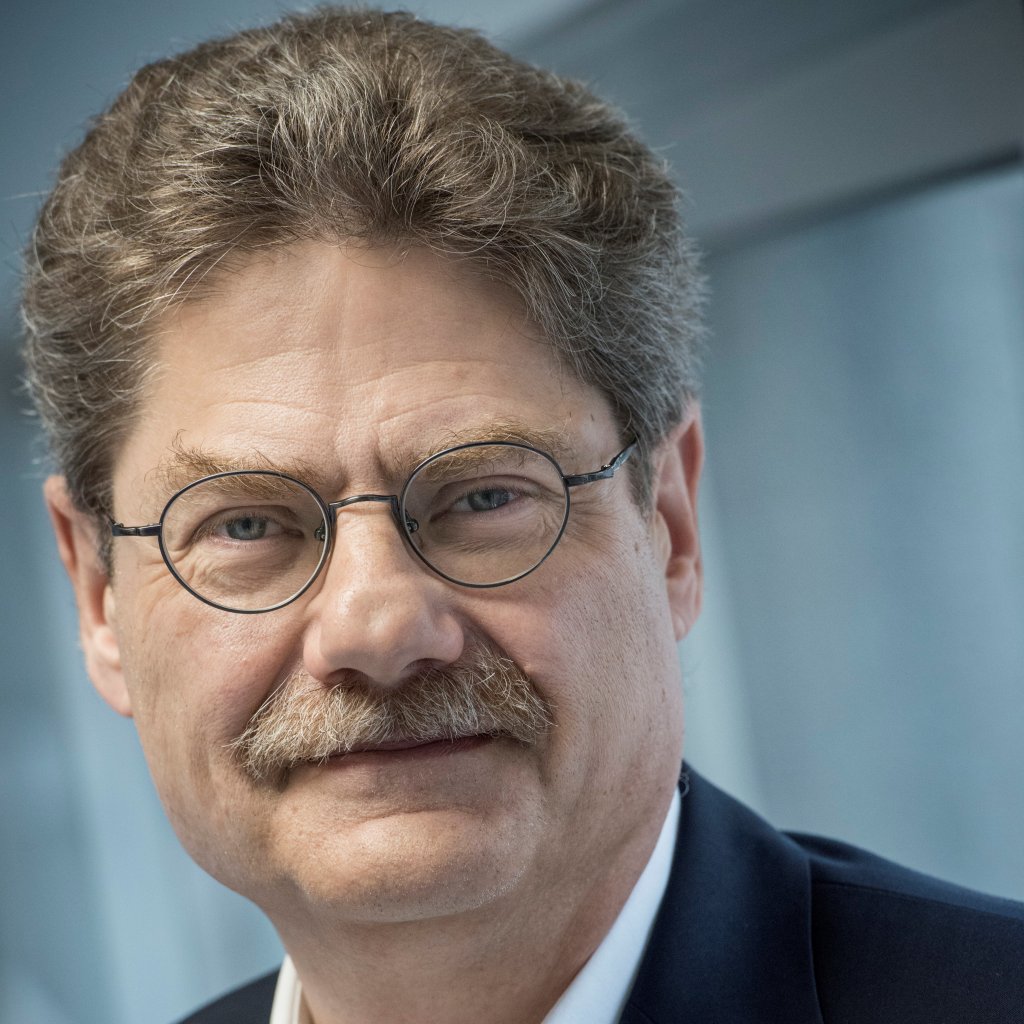
Prof. Jacques Delarue, speaker
Professor Jacques Delarue is MD, PhD, Professor of Nutrition. He leads the Department of Nutritional Sciences and Human Nutrition Laboratory of Brest University Hospital (France). His main research field is about the protective effects of marine omega 3 fatty acids towards insulin resistance (human and rodent models). He is Secretary and chairman of Task Force of Mediterranean Networking of FENS. He was former President and is current Vice-President of French Federation of Nutrition. He is Chairman of the Organizing Committee of International Congress of Nutrition of the International Union of Nutritional Sciences (ICN-IUNS) that will be held in Paris in 2025.
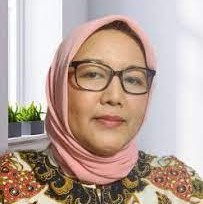
Dr. Ratih Dewanti-Hariyadi, speaker
Dr. Ratih Dewanti – Hariyadi is a Professor in Food Microbiology at the Department of Food Science and Technology and a senior scientist at the Southeast Asia Food Agriculture Science and Technology (SEAFAST) Center, IPB University. Her research interest is characterization and control of foodborne bacterial pathogens such as Salmonella, Cronobacter etc. in foods. In the country, she has been serving as an expert in for the development of policy and standards for food safety, especially for the National Agency for Drug and Food Control, Ministry of Agriculture as well as Ministry of Fisheries and Maritime Affairs. She has been a member of the International Commission on Microbiological Specification for Foods since 2007. In 2013, she received Food Safety Professional in a Developing Country Award from The International Association for Food Protection. Professor Dewanti-Hariyadi obtained her PhD in Food Microbiology from the University of Wisconsin, Madison, US.
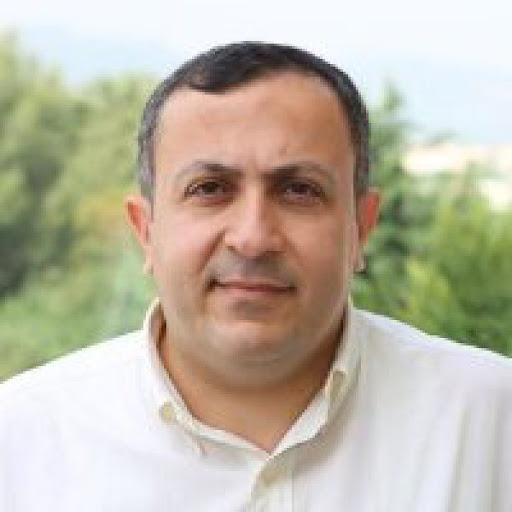
Dr. Ferruh Erdogdu, speaker
Dr. Ferruh Erdogdu is a Professor of Food Process Engineering, Computational Food Processing Group, Department of Food Engineering, Ankara University, Ankara, Turkey. Trainer at the International School on Modeling and Simulation in Food and Bioprocesses in Naples, Italy (2016 – ) Working on shrimp processing with Lyons Seafoods in UK (2008 – ) Professor of Food Engineering (2011 – 2014) University of Mersin, Department of Food Engineering Mersin, Turkey Visiting Scholar, Invited by (Summer of 2013) SIK – Swedish Institute for Food and Biotechnology G Gothenburg, Sweden Visiting Scholar, Invited by (Summer of 2012) Leibniz-Institutet für Agrartechnik Potsdam-Bornim e.V. (ATB) Germany Visiting Scholar (Summer of 2008) Lund University, Department of Food Engineering Lund, Sweden Holder of scholarship of Swenska Institutet Visiting Scholar (Summers of 2002, 2003, 2005 and 2007) University of California, Biological and Agricultural Engineering Department Davis, CA Holder of scholarship of NATO-B by TUBITAK-Turkey in 2005. Post-Doctorate Researcher (Ph.D.) (2000 – 2001) University of California, Biological and Agricultural Engineering Department Davis, CA Editorial Work Journal of Food Engineering – Editor (2018 – ) Journal of Food Process Engineering (2003-Present) International Journal of Food Studies – Associate Editor (2012-2017) Journal of Food Engineering (2010-2017).
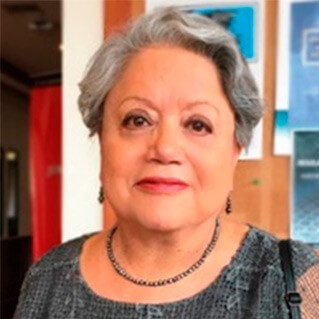
Dr. Wilma B. Freire, speaker
Wilma B. Freire, Ecuadorian, holds the degrees of Nutritionist from the University of Chile, MS in Human Nutrition from Tulane University (USA), and PhD in Human Nutrition and Epidemiology from Cornell University (USA). She was Regional Coordinator of the Food and Nutrition Program at the Pan American Health Organization in Washington, DC from 1994 to 2005. She was Professor of Nutrition at the Universidad San Francisco de Quito (Ecuador) from 2005 to 2020 and is now Emeritus Professor at that university. She has more than 60 scientific publications in refereed journals and has authored five books and several book chapters. She directed national-level research projects in Ecuador on the nutritional situation of children under the age of five, the population from 0 to 59 years, and the health and nutrition of older adults. She was elected Vice President of the Latin American Society of Nutrition for the period 2018 to 2021 after which, she will assume the role of President.
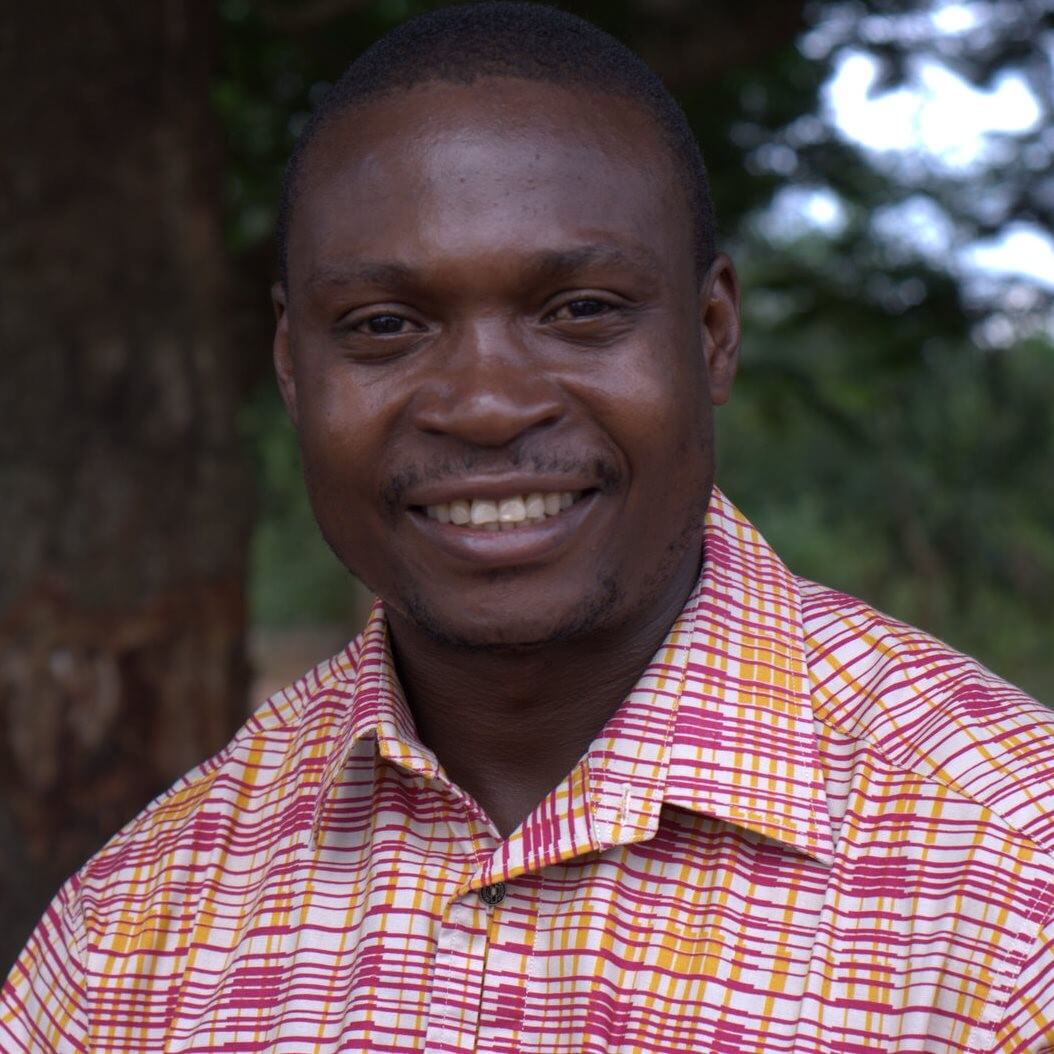
Dr. Robert Fungo, speaker
Robert Fungo has a PhD in Applied Human Nutrition from Makerere University, Uganda. He is a Researcher and an Academician in the field of nutrition and food science and technology. He is a Lecturer at Makerere University. He is also supporting the Alliance of Bioversity International and CIAT, where he takes lead to demonstrate how beans can contribute to individual and household food diversity, nutrition and health outcomes and food security. His professional interest includesunderstanding the influence of agrobiodiversity and food systems on the nutrition and food security of women and children in low and middle-income African countries (LMIACs). He has published about 30 peer-reviewed articles in reputable journals and is serving as a Reviewer for a member of Journals. He has mainly conducted research on how locally available and culturally acceptable foods in Africa contribute to food and nutrition security among children and women. Robert is currently working as a Lecturer at Makerere University. He has previously worked as Nutritionist with several international agencies including FAO, CIFOR, CIAT and Bioversity International, in East, West, Central and Horn of Africa. He has also served as a Consultant with Regional agencies including RUFORUM, IGAD and the USAID FANTA III Project. Robert is the current Vice President of the Federation of African Nutrition Societies (FANUS) an advocacy platform advocating for food and nutrition security to be recognized by African governments as a development agenda.
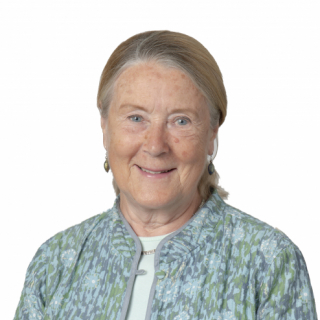
Professor Catherine Geissler, session chair
Secretary General of the International Union of Nutritional Sciences (IUNS) (2013-2017, 2017-2022); Professor Emerita of Human Nutrition, King’s College London. Past President of The Nutrition Society (UK and Ireland) (2013-16). Education: Dental Surgery in Edinburgh, Masters in Nutrition & PhD in Human Nutrition at the Department of Nutrition, Berkeley, based on lactation studies in Teheran, Iran. Posts: Lecturer to Professor and Head of the Department of Nutrition, and the Division of Health Sciences, King’s College London, and Director of the UK Higher Education Academy, Centre for Health Science and Practice. Main research interests: international public health nutrition; energy metabolism and obesity; and iron metabolism. Academic publications include textbook: Geissler & Powers: Human Nutrition, 11th (2005),12th (2010), 13th (2017) editions, and 14th edition in preparation (for 2022).
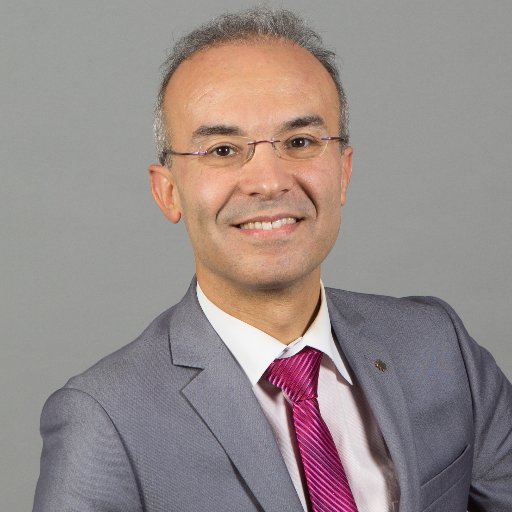
Prof. Samuel Godefroy, speaker
Samuel Godefroy is the former Director General of Health Canada’s Food Directorate, Canada’s Food Standard Setting body and a former Vice Chair of the FAO/WHO Codex Alimentarius Commission. Samuel is currently Full Professor of Food Risk Analysis and Regulatory Policies in the Department of Food Science, Faculty of Agriculture and Food Sciences, Université Laval, Québec, QC, Canada and is leading the development of a Food Risk Analysis and Regulatory Excellence Platform (FRAREP), hosted by the Institute of Nutrition and Functional Foods (INAF) of Université Laval. Prof. Godefroy currently serves as a senior food science and regulatory expert on a number of advisory bodies and committees domestically and internationally, including on the International Advisory Committee of the China Centre for Food Safety Risk Assessment (CFSA). Prof. Godefroy also serves as a strategic and operational advisor to international food safety capacity building initiatives focused on regulatory enhancement, implemented by the United Nations Industrial Development Organization (UNIDO) and the Food and Agriculture Organization of the United Nations (FAO). Prof. Godefroy is the founder and the current president of the International Society of Food Regulatory Science, incorporated in Canada, with the aim to promote food regulatory science disciplines at the international level. Dr. Godefroy assumed senior food regulatory positions at the executive level with Health Canada for over 15 years.
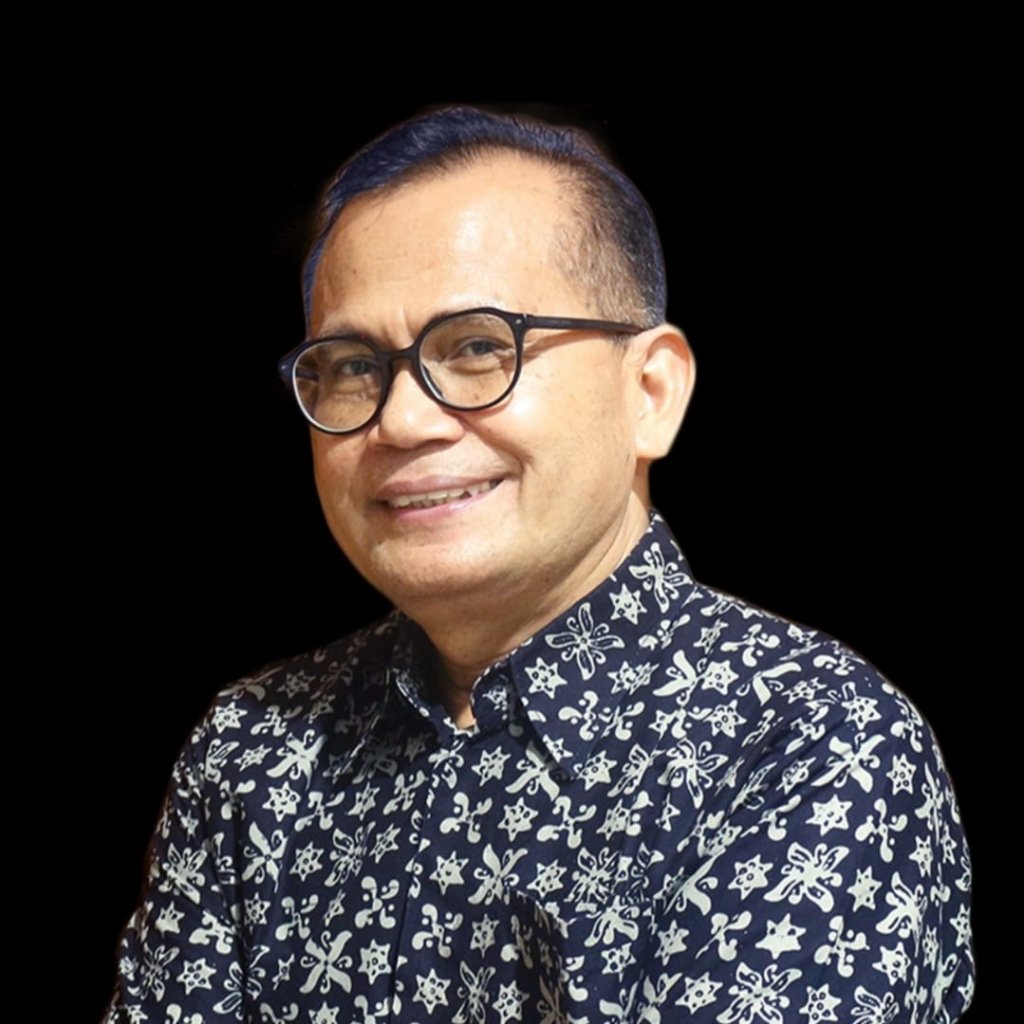
Prof. Ridwan Hardinsyah, speaker
Professor in Nutrition at the Department of Community Nutrition; Faculty of Human Ecology, IPB University, Bogor -Indonesia; Chairman, Association of Nutrition Higher Education Institutions; President, Federation of Asian Nutrition Societies (FANS)

Dr Ana Islas Ramos, speaker
Ana Islas Ramos serves as Nutrition Officer in the Food and Nutrition Division at the Food and Agriculture Organization of the United Nations (FAO) where she leads the work on the development of Food-Based Dietary Guidelines. Dr. Islas’ early work experiences include positions as food technologist, childbirth educator and clinical nutritionist. After graduate degrees in nutrition education, she took care of the nutrition education component of a project developing an educational video game for tweens. Later, she worked as a researcher and consultant for the National Institute of Public Health, Mexico where she coordinated the nutrition education component of a large multi-level multi-strategy intervention to promote healthy eating and physical activity in upper elementary children in Mexico City. In 2013, Dr. Islas joined the Laurie M. Tisch Center for Food, Education and Policy at Teachers College Columbia University whose mission includes cultivating research about connections between a just, sustainable food system and healthy eating. From 2014 to 2015, she served in the expert committee for the revision of the Mexican dietary guidelines. Dr. Islas graduated from the masters and doctoral degree programs in Nutrition Education at Teachers College, Columbia University where she worked in the development of several nutrition education curricula with behavioural approaches and most with a sustainability focus.

Prof. Hyun-Sook Kim, speaker, discussant
IUNS Council Member and Professor Dept. of Food and Nutrition, Sookmyung Women’s University, Korea. See Prof. Hyun-Sook Kim

Prof. Anna Lartey, speaker
Anna Lartey is currently a Professor of Nutrition at the University of Ghana. She was the Director of Nutrition at the Food and Agriculture Organization of the United Nations, Rome, Italy from October 2013 to December 2020, where she led FAO’s work on Food Systems for Nutrition. Prior to that Anna Lartey was a Professor of Nutrition at the University of Ghana (1986-2013). She was a Fulbright fellow (1994-1998) at the University of California, Davis, USA. She worked as a researcher in Sub-Saharan Africa for 27 years. Her research focussed on maternal and child nutrition. Anna won the University of Ghana’s “Best Researcher Award for 2004”. She held the International Development Research Center (IDRC, Canada) Research Chair in Nutrition for Health and Socioeconomic Development in Sub-Saharan Africa (2009-2014). She is a recipient of the Sight and Life Nutrition Leadership Award for 2014. Anna Lartey was the President of the International Union of Nutritional Sciences (IUNS, 2013-2017). Anna was awarded a Doctor of Science honoris causa, by McGill University in June 2018.
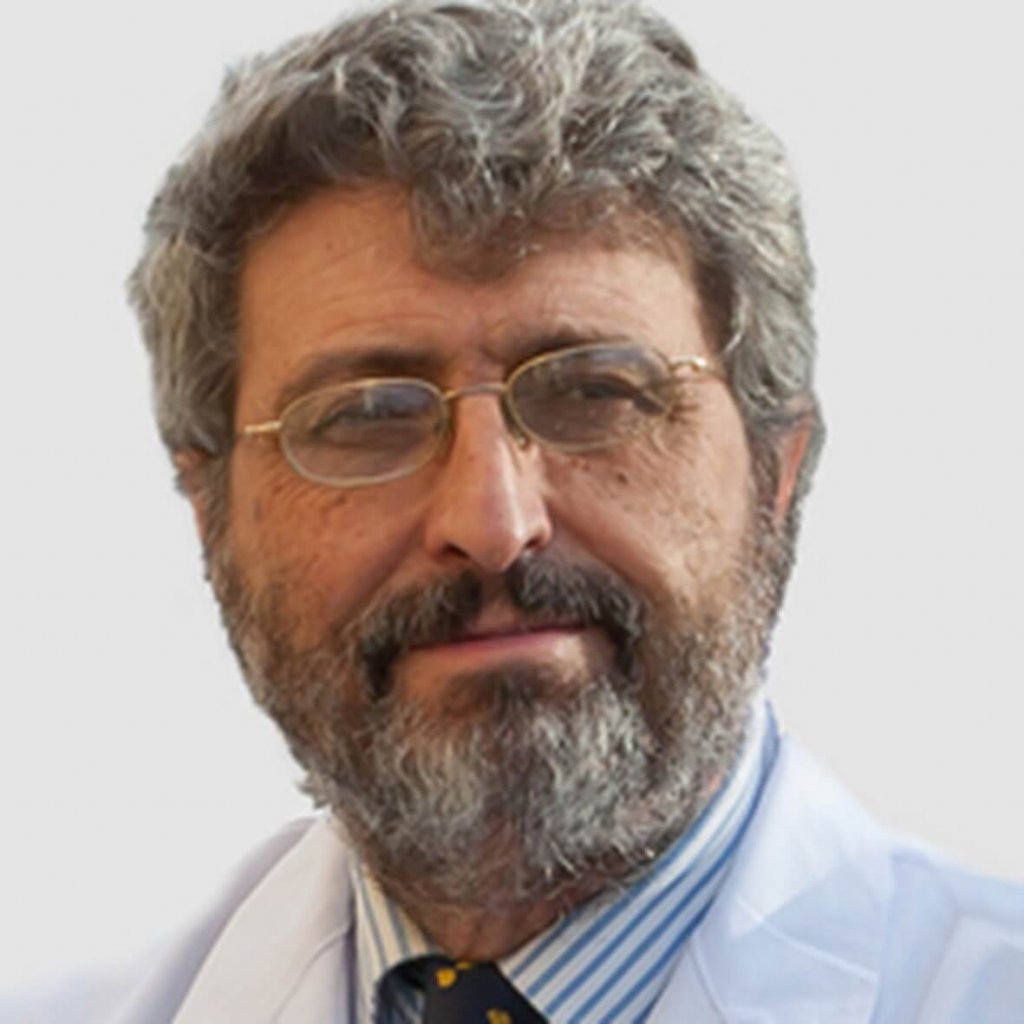
Prof. J Alfredo Martinez, conference chair and speaker
Prof J Alfredo Martínez (DPharm, PhD, MD) has been Full Professor of Physiology and Nutrition at the University of Navarra for more than 20 years, and has also been Full Professor of the University of the Basque Country (1990), as well as Registered Nutritionist (1991) and Registered Public Health Nutritionist (1999) in Great Britain. This year, Dr. Martínez was elected president (1999-2001) to the Spanish Nutrition Society (SEÑ) and entered the American Society for Nutrition (Member). Since 2018, Dr. Martínez is the director of the Precision Nutrition and Cardiometabolic Health Program in IMDEA Food Institute. In addition, Dr. Martínez has been advisor for the European Union in Nutrition and Obesity related issues. His teaching and scientific career has been recognised by several awards, such as the Europe Award (1995), General Council Award (1999), CEPA (2000), Danone Foundation (2002), Dupont Award (2011), Hipócrates Award (2016), Medal of the General Council of Pharmaceutics (2017) and the Pasteur Award in Medical research from the European Association for Competitivity (2020). As the result of his scientific activity, Dr. Martínez has received more than 30000 citations. Dr. Martínez has also collaborated in multisectoral projects with several centres and institutions of the healthcare sector. Additionally, he has also been involved in 10 projects founded by the European Union and more than 50 projects with national and private funding, being co-author of several patents. Currently, he is President of the International Union of Nutritional Sciences (IUNS) since 2017.

Prof. Dr. Ing. Alexander Mathys, speaker
Prof. Dr.-Ing. Alexander Mathys, a food technologist, received a doctoral degree in food processing in 2008. Since 2016, he has been Professor in Sustainable Food Processing at ETH Zurich, Switzerland, where he is focusing on more efficiency and sustainability of value chains in food and feed. Dr. Mathys was Head of the Bioeconomy Department at German Institute of Food Technologies DIL in 2012-2015. He was expert in non-thermal preservation and sterilization technologies at the Nestlé Research Centre Lausanne in 2009-2012. Dr. Mathys is the author of more than 100 publications (80 peer review articles, 11 patent applications, 9 book chapters, 1 book, >30 conference papers). He is President of the Swiss Academy of Sciences (SCNAT) National Committee of the International Union of Food Science and Technology IUFoST (2021-2024) and serves as Governing Council Member (2020-2023) at the International Centre of Insect Physiology and Ecology (icipe), Nairobi, Kenya. Dr. Mathys has won several prestigious research awards and was selected Young Researcher of the 60th Meeting of Nobel Laureates 2010.
Alison Meston, introductions
Alison’s role as the ISC Communications Director includes developing the ISC communications and outreach strategy, supporting membership engagement and working alongside colleagues on a wide range of ISC projects. Alison holds a Master of Arts degree in Public Policy and International Law from the American University of Paris and most recently, a Programme Certificate in Climate Change Management from the University of Edinburgh. Alison has post-graduate qualifications in Journalism and Education. Prior to joining the ISC, Alison worked in the Communication and Information sector at UNESCO, as Director of Press Freedom for the World Association of Newspapers and News Publishers, and as a Public Affairs officer for the British Red Cross. She also spent 12 years in the labour movement in Australia and the UK, organizing campaigns in sectors such as nursing, care homes, education, and the food and airline industries.
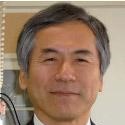
Dr. Mitsutoshi Nakajima, speaker
Dr. Mitsuoshi Nakajima received his PhD in Chemical Engineering from University of Tokyo, Japan. He has worked on food engineering projects, including at Kyushu University, National Food Research institute and University of Tsukuba (present). He was a Post Doc at ETH, Switzerland, Visiting Professor in Karlsruhe University, Germany, and Director, Alliance for Research on North America (ARENA). Currently he is Professor, Faculty of Life and Environmental Sciences, University of Tsukuba, Japan. His current research interests include food engineering, downstream processing of algae biomass, and food micro-nano process systems, such as microchannel emulsification. He has published about 300 research papers, and 50 patents. He has received numerous awards and recognitions. Dr. Nakajima is Project Manager of the Research Consortium Project “Development of Innovative Food Solutions for Simultaneous Food Loss Reduction and Quality of Life Improvement”, begun in December 2020 as part of the Moonshot R&D Programmes for Agriculture, Forestry and Fisheries in Japan.
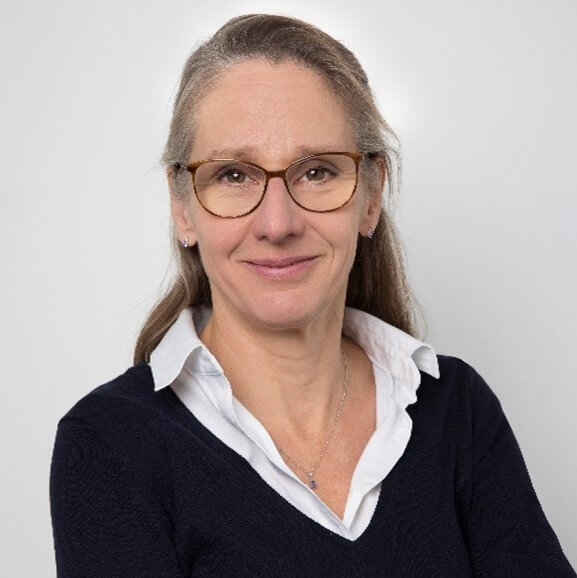
Dr. Lynnette M. Neufeld, speaker
Lynnette M. Neufeld is currently Director, Knowledge Leadership (KL) at the Global Alliance for Improved Nutrition (GAIN), where she is part of GAIN Senior Management and heads a team of 35+ nutrition and food safety experts. The KL team consolidates, generates, and facilitates the use of evidence to strengthen the quality of design and implementation of GAINs programs in low- and middle-income countries. The team also leads a large program to generate evidence to improve safety of nutritious foods in informal markets and evaluates several programs to improve foods systems for nutrition in collaboration with academic institutions globally. Dr Neufeld has thirty years’ experience in the field of nutrition where she has worked in several technical advisory and academic positions and published over 150 peer-reviewed publications and book chapters. Previous positions include Director of the Division of Nutritional Epidemiology at the National Institute of Public Health in Mexico (INSP for its acronym in Spanish), and Chief Technical Advisor at the Micronutrient Initiative (now Nutrition International). She is Adjunct Professor at Emory University Rollins School of Public Health, and Visiting Professor at INSP, Mexico. Global activities include Co-Coordinator of the Action Track 4 Science Group of the Food Systems Summit, incoming President of the International Union of Nutritional Sciences (IUNS), Past-Chair of the Micronutrient Forum Steering Committee, former Board member of the American Society of Nutrition, current and past member of several WHO Guideline Development Groups, among others. Dr Neufeld holds a Master’s and PhD in International Nutrition from Cornell University.

Prof. Ngozi Nnam, speaker
Ngozi Nnam is a Professor of Community and Public Health Nutrition affiliated to the Department of Nutrition and Dietetics, University of Nigeria, Nsukka. She has served as Dean, Faculty of Agriculture, and Head, Department of Home Science, Nutrition and Dietetics, University of Nigeria, Nsukka. Professor Nnam is the President Federation of African Nutrition Societies (FANUS). She has served as President of Nutrition Society of Nigeria and Chairman, Civil Society – Scaling Up Nutrition in Nigeria. She is a member of the Nigerian National Council on Nutrition. She sits on the Scientific Committee of Choices International Foundation, The Netherlands. She is a member of Standing Together for Nutrition Coregroup, a global nutrition Consortium, that has joined forces to estimate the impact of COVID-19 on Nutrition and best evidence-based advice on how to address the impacts. She also serves in the Steering Committee of the Nutrition Consortium.Professor Nnam’s research interest is on Nutrition of women and children, addressing malnutrition through the use of locally available food crops, improving nutritional qualities of plant foods to increase utilization and production and food product development especially infant complementary foods. She has worked extensively on improving infant, young child and maternal nutrition particularly nutrition in the first 1000 days.
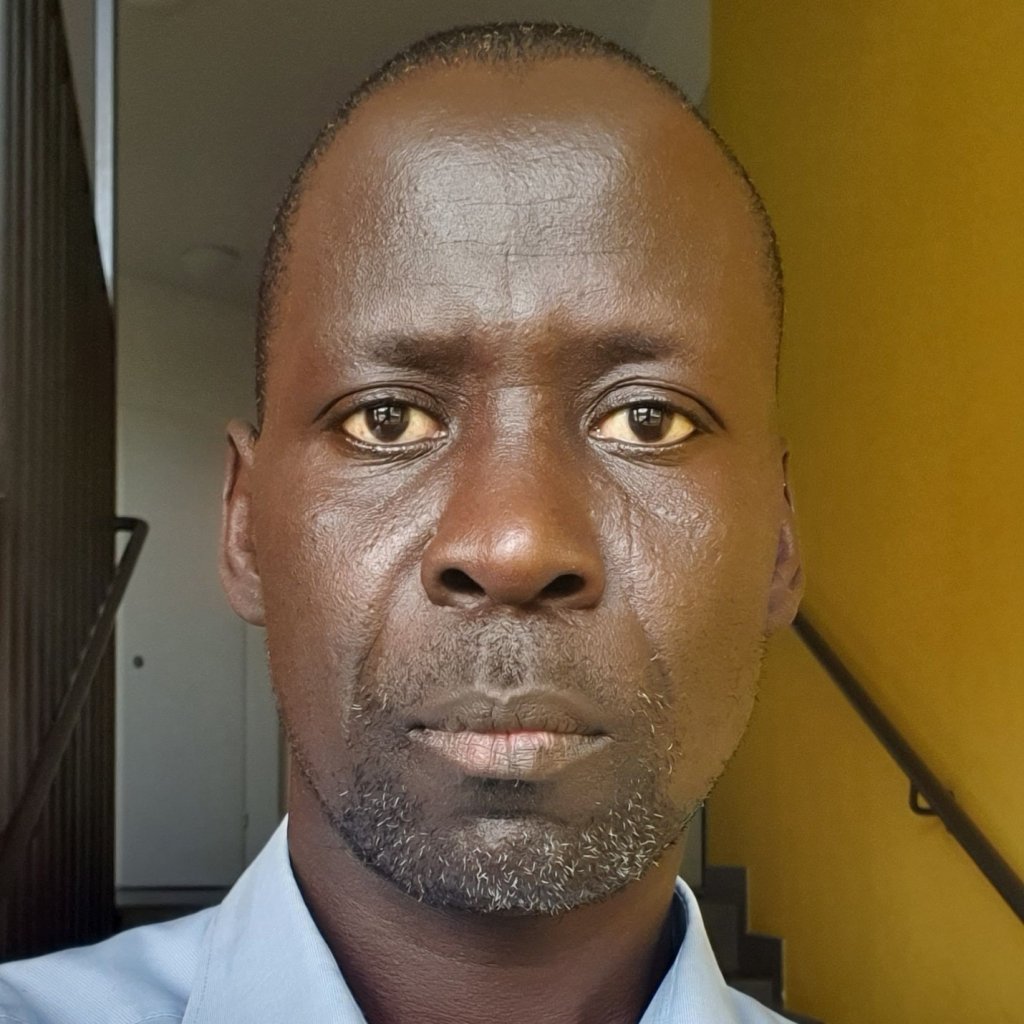
Dr. Victor Owino, speaker
Dr Victor Owino is a Nutrition Specialist in the International Atomic Energy Agency’s Nutritional and Health-Related Environmental Studies Section. His work focuses on supporting Member States to apply stable isotope techniques to design and evaluate nutrition interventions that target all forms of malnutrition. Current thematic areas include understanding protein quality and the interaction between adverse environmental exposures, nutrient metabolism and nutritional and health outcomes. Dr Owino has previously led work at Valid Nutrition on development and testing of the efficacy of novel ready to use foods for management of acute malnutrition. He also championed the nutrition component of the pilot phase of the WASH Benefits Project that compared the efficacy of a lipid-based supplement compared to water and sanitation on child growth and health in Western Kenya. Until 2015 Dr Owino led the Department of Human Nutrition at the Technical University of Kenya. He is a member of the Kenya Nutritionists and Dieticians Institute and a Fellow of the Nevin Scrimshaw International Nutrition Foundation and an alumnus of Africa Nutrition Leadership Programme. Dr Owino has over 30 publications in the area of food and nutrition in peer reviewed journals. Dr Owino is a proud alumnus of the University of Nairobi (BSc), University of Ghent (MSc), University College London (PhD) and most recently York St John’s University (MBA-Leadership and Management).

Dr. Sebastiano Porretta, session co-chair
Dr. Sebastiano Porretta is the leading researcher of the Ministry of Economic Development at the Experimental Station for the Food Preserving Industry of Parma where he is responsible for the Department of Consumer Science. He is very well known to the scientific community for research in quality evaluation and product development and for performing coordination and direction of National and European projects as well. His original approaches to studying the interactions between foods and consumers and evaluating the effect of ingredients on food quality and consumer acceptability are considered ground-breaking
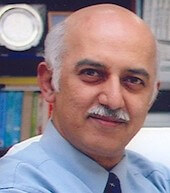
Dr. Vish Prakash, conference chair
Dr. Vish Prakash is former Distinguished Scientist of CSIR India; Former Director of CFTRI Mysore; Past President of IAFoST; Chair of the IUFoST World Congress in Mumbai 2018; Founding Chairman of IFRIFANS, India, the International Foundation for Research in Food and Nutrition Security; member of numerous scientific publication boards; Chairman India Region of European Hygienic Engineering Design Group, Germany; Member, Global Phytonutrient Society (GPS) Tokyo, Japan; He has held the position of Vice President in IUNS, the sister Union to IUFoST. Elected to the IUFoST Board of Directors in 2018 and is now President of IUFoST.

Pingfan Rao, PhD, session chair
Pingfan Rao, PhD, is Past President of IUFoST (2012-14), Vice President of the Chinese Institute of Food Science and Technology (CIFST) and Professor and Director of the Chinese Academy of Science (CAS) Shanghai Institutes of Biological Sciences (SIBS)-Zhejiang Gongshang University Joint Center of Food and Nutrition Research. Professor Dr. Rao chairs the food division of Chinese National Committee for Future Earth (CNC-FE), a committee of the International Science Council (ISC) and is editor-in-chief of Science of Food, a Nature Partner Journal. Dr. Rao received B.Eng from Fuzhou University of China, MS from Hiroshima University and PhD from Osaka University of Japan.
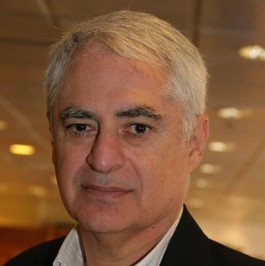
Dr. I. Sam Saguy, speaker
Dr. Sam Saguy is Professor Emeritus, Food Innovation & Technology, The Hebrew University of Jerusalem, Israel. Sam holds a DSc and MSc in Food Engineering and Biotechnology, BSc in Chemical Engineering, Technion the Israeli Institute of Technology, Haifa, Israel. Main research topics focus on open innovation, new products development, consumer research, modeling, kinetics, shelf life, optimization, rehydration, frying and wetting. Broad academic and industrial experience (e.g., Nestlé, Switzerland, and US; Pillsbury, GrandMet, Molson-Coors, USA; Ferrero, Italy; EFKO Russia). Founder and a Managing Associate of a Consumer Research Company (Israel) and a startup (US). Serves on several Editorial Scientific Boards (Nature Partner Journal, npj; Science of Food). He is a Fellow of IAFoST. Honored as a Visitante Distinguido de la Universidad Nacionale de Cordoba (UNC), Argentina, Academic Lifetime Achievement Awards, ICEF and the Israeli Food Industry Association-Manufacturers Association.
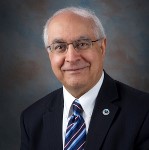
Dr. Fereidoon Shahidi, session chair
Dr. Fereidoon Shahidi is University Research Professor, Memorial University of Newfoundland, Canada; Founder and Director of the International Society of Nutraceuticals and Functional Foods (ISNFF), Disciplinary Group of IUFoST; Founder and Editor-in-Chief of related publications (Journal of Food Bioactives, etc.), one of the most cited authors in Food Science and Technology. He is Chair of the IUFoST Scientific Council and a Fellow of IAFoST.
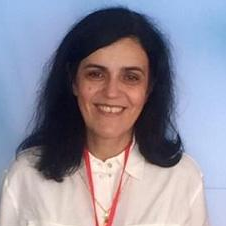
Dr. Cristina L.M. Silva, session chair
Dr. Cristina L.M. Silva is Associate Prof. at Portuguese Catholic University – College of Biotechnology (ESB). She is Chem. Eng. and PhD in Biotechnology and Food Engineering. She is a leader of research on quality and safety of processed foods and by-products, with particular emphasis on mathematical modelling and optimisation of the processes. At ESB, Cristina Silva is assistant director for the internationalization, and coordinates the master’s degree in food engineering. She is also associate editor of the Journal of Food Processing Engineering and editor-in-chief of the International Journal of Food Studies.
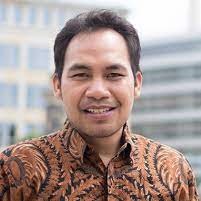
Dr.-Ing. Azis Boing Sitanggang, speaker
Dr.-Ing AB Sitanggang, is a faculty member the Department of Food Science and Technology and Coordinator of Food Safety and Quality Program of the Southeast Asian Food & Agriculture Science and Technology (SEAFAST) Center, Bogor Agricultural University (IPB), Indonesia. His research includes membrane technology for (simple and complex) enzymatic reactions, reactor designs, and related topics in food processing engineering. He earned his PhD in Chemical and Process Engineering, Technische Universitaet Berlin, Germany. He is a Member of the Early Career Scientist Section of IUFoST/IAFoST.
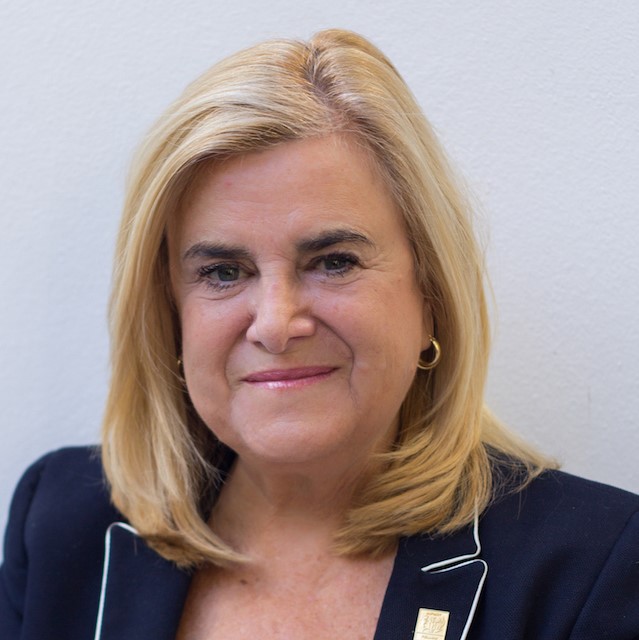
Dr. Susana Socolovsky, speaker
Susana Socolovsky, Ph.D., CFS is a Doctor in Chemistry from the University of Buenos Aires, Argentina. Susana has devoted 20 years to scientific research and teaching at the University of Buenos Aires. Among the honours she has received, she was awarded the Argentine National Biannual Prize on Organic Chemistry and is an elected Fellow of the International Academy of Food Science and Technology. Susana has lectured in more than 270 Conferences in 20 countries and dictated courses in 14 Latin American countries. She has authored multiple scientific papers, reviews, book chapters and magazine articles. She is the immediate past President of the Argentine Association of Food Technologists as well the President of the 2019 Latin American and the Caribbean Congress of Food Science and Technology. She is a member of the Argentine Nutrition Society and has served as a member of the International Scientific Committee of the 21st International Congress of Nutrition 2017. She is a member of the Editorial Council of the Journal Actualización en Nutrición, published by SAN. She acts as a non-governmental representative at Mercosur regulatory meetings and is member of the expert panel of the Argentine National Program for Healthy Eating and Prevention of Obesity since 2016.

Frank Sperling, guest discussant
Frank Sperling is a Sr. Project Manager with IIASA, focusing on initiatives concerned with food system transformations, while also pursuing complementary academic research. He was engaged in the IIASA-ISC Consultative Science Platform, a multi-stakeholder initiative exploring the implications of COVID-19 for development, where he was the alt. lead on the resilient food system theme. With over 18 years of experience of working on international development issues, his professional interests are driven by the desire to advance the application of sustainability concepts in strategic and operational contexts. This includes, inter alia, leading as Chief Climate Change Specialist with the African Development Bank the thematic work on green growth and mainstreaming climate change adaptation into development policies and practice as Environmental Specialist with the World Bank. He is interested in the use and application of scientific knowledge and has been an IPCC lead author of the Fifth Assessment Report and a contributing author to the IPCC Special Report on Climate Extremes and Adaptation. He has worked on various programs and initiatives in South America, Africa and South East Asia.
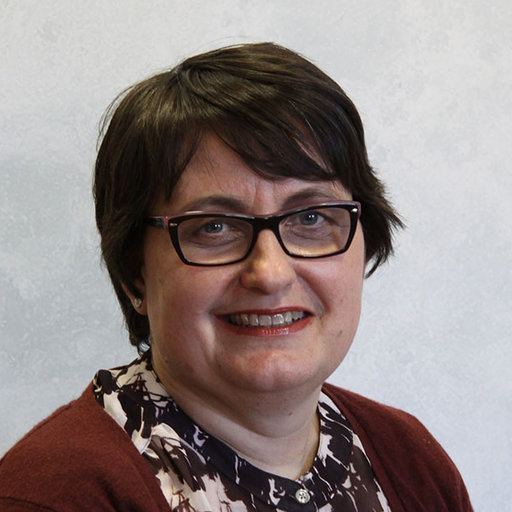
Dr. Carol Wallace, speaker
Dr. Carol Wallace is Professor of Food Safety Management Systems, University of Central Lancashire, UK., co-director of the Nutritional Sciences and Applied Food Safety Studies Group and a steering team member for the UCLan Research Centre for Global Development (C4Globe). Carol’s research interests include food safety performance from farm to fork, effectiveness of food safety management systems and food safety culture, causal factors in food outbreaks and incidents, and controlling food safety risk in business and the home. Carol is widely published in the field of food safety and is author/co-author of several best-selling textbooks, which have been instrumental in guiding HACCP and food safety management practice in the international food industry. She was elected as a Fellow of the International Academy of Food Science and Technology (IAFoST) in 2020.
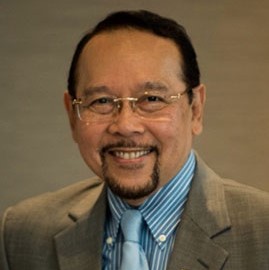
Dr. Aman Wirakartakusumah, session chair
Dr. Aman Wirakartakusumah, Presiding Officer of the International Academy of Food Science and Technology (IAFoST) is a scientific leader, experienced administrator, a diplomat at the highest levels internationally. He was Indonesian Ambassador to UNESCO, Rector of two Indonesian universities, and he is a member of the Indonesia Academy of Sciences. He is actively engaged with ASEAN/APEC countries in implementing food safety policies, measures, and educational standardisation. He was selected by the United Nations for the Scientific Group advising the United Nations Food Systems Summit.
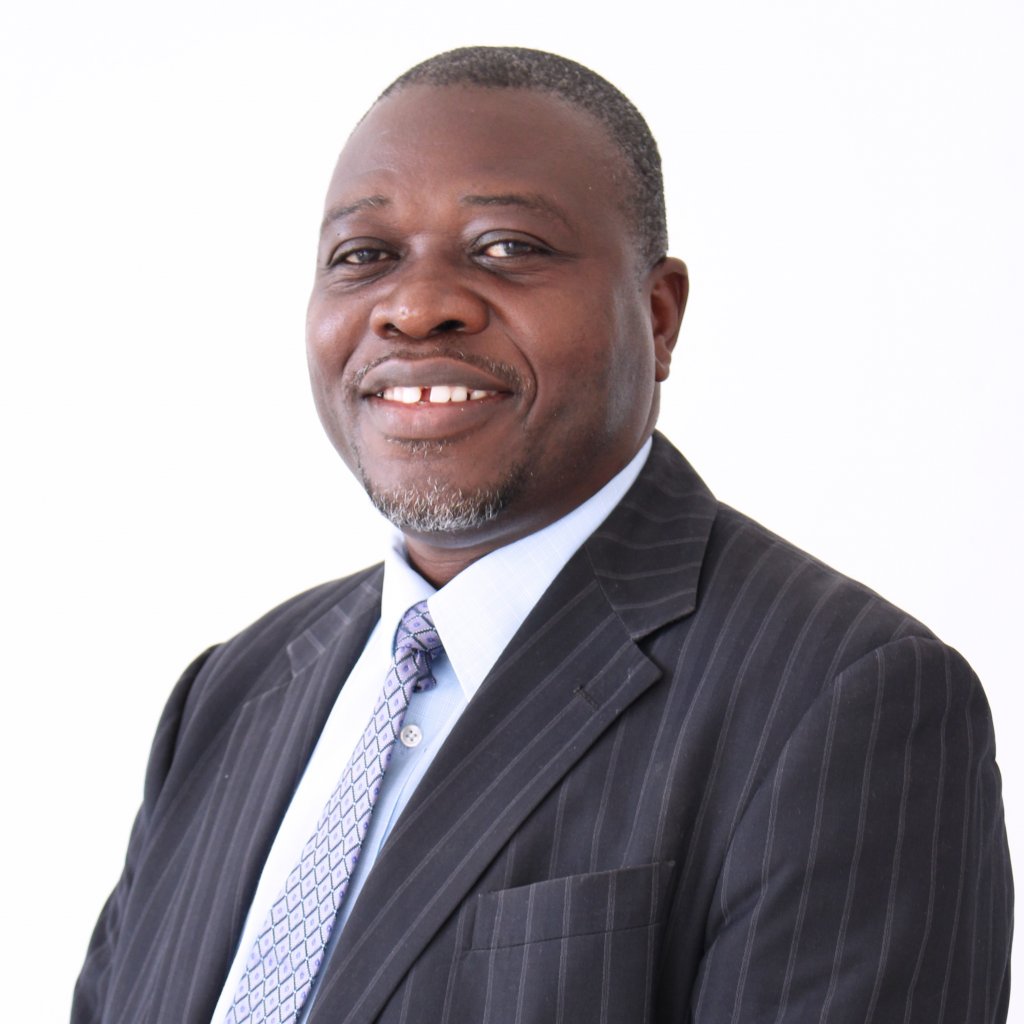
Prof. Francis Bruno Zotor, session chair
Professor Francis Bruno Zotor is a Professor of Public Health Nutrition at the School of Public Health. He has a doctoral training in public health nutrition, is a registered public health nutritionist with the Association for Nutrition of the UK and Northern Ireland and a specialised training in pedagogy with a Fellowship of the Higher Education Academy of the UK and Ireland. He is a recognized leader spanning over two decades in nutrition across Africa and has been instrumental in driving and promoting the establishment of a strong nutrition profession on the continent, training and research to underpin programme delivery especially across the health and education sectors in Africa. Prof Zotor’s global context of his work has enabled him to work in both developed and developing societies. He serves on a number of international boards (in Africa, as Trustees of the African Nutrition Society, the Federation of African Nutrition Societies and AfriCAN). Currently, he serves on Council of the International Union of Nutritional Sciences (IUNS), a body that oversees the strategic directions of nutrition across the globe. In Ghana, he chairs the Food and Drug’s Board’s Technical Advisory Committee on Nutrition.
Abuot IUFoST
The International Union of Food Science and Technology (IUFoST) is the global scientific organization representing more than 300,000 food scientists, technologists and engineers from its work in over 100 countries around the world. IUFoST is a full scientific member of ISC (International Science Council) and the only elected global representative of Food Science and Technology in the ISC. IUFoST represents food science and technology to international organizations such as WHO, FAO, UNDP, UNIDO, The World Bank, and others. IUFoST organises world food congresses, among many other activities, to stimulate the ongoing exchange of knowledge and to develop strategies in those scientific disciplines and technologies relating to the expansion, improvement, distribution and conservation of the world’s food supply.
About IUNS
The mission and objectives of the International Union of Nutritional Sciences (IUNS) are (i) to promote advancement in nutrition science, research and development through international cooperation at the global level and (ii) to encourage communication and collaboration among nutrition scientists as well as to disseminate information in nutritional sciences through modern communication technology. The IUNS features contemporary global nutrition issues, such as the Global Challenge of Obesity as well as the nature and determinants of child development and their implications for programmatic interventions with young children. The IUNS also embraces global nutrition agenda to address food and nutrition problems in developing countries as well as food safety training for nutritionists. The vision of the IUNS is “living a life without malnutrition is a fundamental human right”. The persistence of malnutrition, especially among children and mothers in a world of plenty is immoral. Nutrition improvement anywhere in the world is not a charity but a societal, household and individual right.
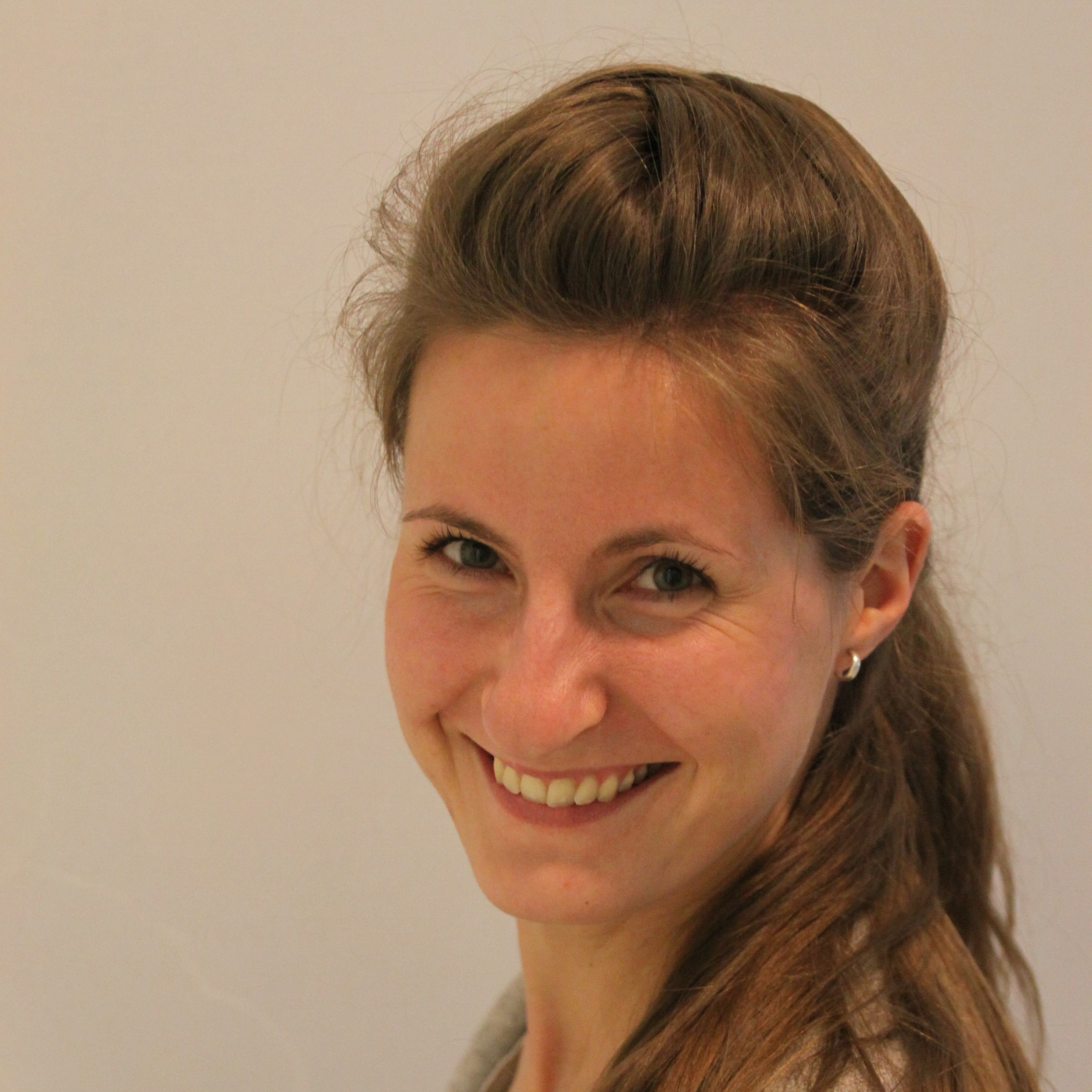
Should you have any questions, please contact the
ISC Membership Liaison Officer Anne Thieme
via [email protected].
Photo by Markus Winkler on Unsplash